Impacts of Corruption, Access to Finance, Productivity in 27 Transition Economies, was one of over 50 advanced research posters with abstract presentations at Fusion Building, Bournemouth University Conference on 29 November 2023, Fernbarrow, Bournemouth Poole Dorset UK.
The author is now honoured that this poster with abstract appears internationally on research gate within the works of leading international professor on successes and failures of transition economics, featured in the research lab of her AFE Advisor, Director, Professor Dr Jens Hölscher (he has over 142 multi-media articles listed) and on the author’s own research gate pages.
Jens Hölscher’s lab | Bournemouth University (BU) (researchgate.net)
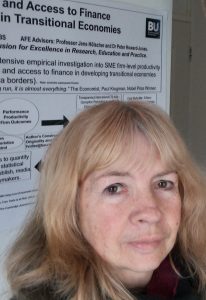
The poster exhibition was then followed by the conference keynote talk (by expert, Dr Gelareh Roushan, Head Of Centre for FLIE and Associate Professor at Bournemouth University) discussing the profound implications of ‘GEN AI and ChatGPT opportunities and realities for research.’
The debates and ethical considerations on Gen AI seem to be rising with differing viewpoints and experiences, some conceding at the BU conference that the simplicity and accessibility of Gen AI and ChatGPT, means it is rapidly growing at speed, likely to be found in everyday use amongst a number of researchers and general public to make quick connections, speeding up workload processes and saving time, as hinted at during the fastmoving fascinating compelling keynote lecture speech at Bournemouth University. The lecture theatre was at full capacity, with over a hundred attendees. We are all sure that we will hear more on the impact of Gen AI from Dr Gelareh Roushan, Bournemouth University.
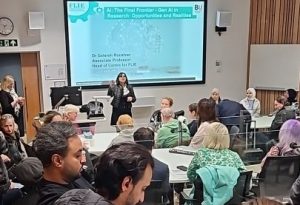
Head of Centre for FLIE – Dr Gelareh Roushan – Key note conference lecture – Gen AI
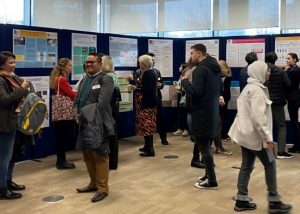
BU Poster exhibition (right side top 3rd position near centre poster – black and white – and author busy early on in engagement fair golden hair).
The emerging pivotal role of Eastern Europe with corruption, access to finance, productivity matters within the greater context of Western Europe, US and world.
The poster author, Fiona Vidler, her ‘personal research experience as a non-expert’ viewpoint on AI is that she had completed writing and reviewing research pages to date on over 350 academic worldwide references without AI, before AI fully emerged in news headlines in 2023, where some specific papers relevant to Eastern Europe were not even sourced in automatic electronic media searches let alone AI – a rationale for advancing knowledge to fill gaps. So, she feels personally ‘authentic’ in that she has avoided the debated emerging conscious or subconscious AI biases, influences, searches on internet, academic limitations, ethical, percentage of AI inaccuracies or ‘virtual seeming truths’ within the current implications of AI. In future, she feels now from a researcher, writer and publisher viewpoint, that there is the need to considerations of responsible use of AI, otherwise objective research beyond perceptions with meaningful research design (a theme of her own research) and virtual subjective perceptions of reality could blur.
Note from Fiona Vidler MBA MSc MLIBF Business School Bournemouth University:

All exhibitors, presenters and ticket holders internal/external/public attendees ticked boxes before admission, giving permission for any photographs to be circulated externally for responsible promotional marketing – with ‘whole’ conference room scenes credited copyright photos to the Doctoral College Conference Team, Bournemouth University December 2023.
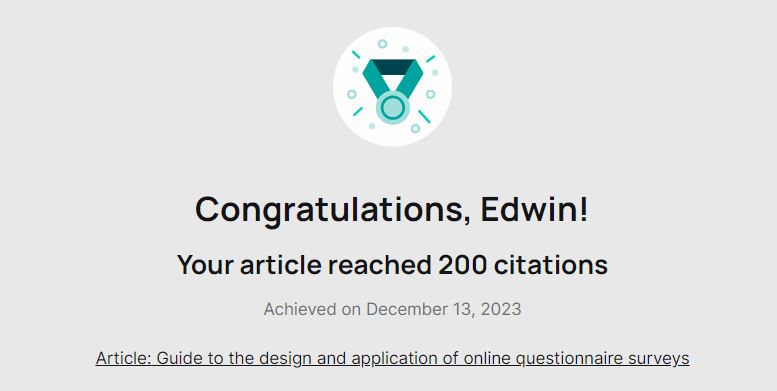
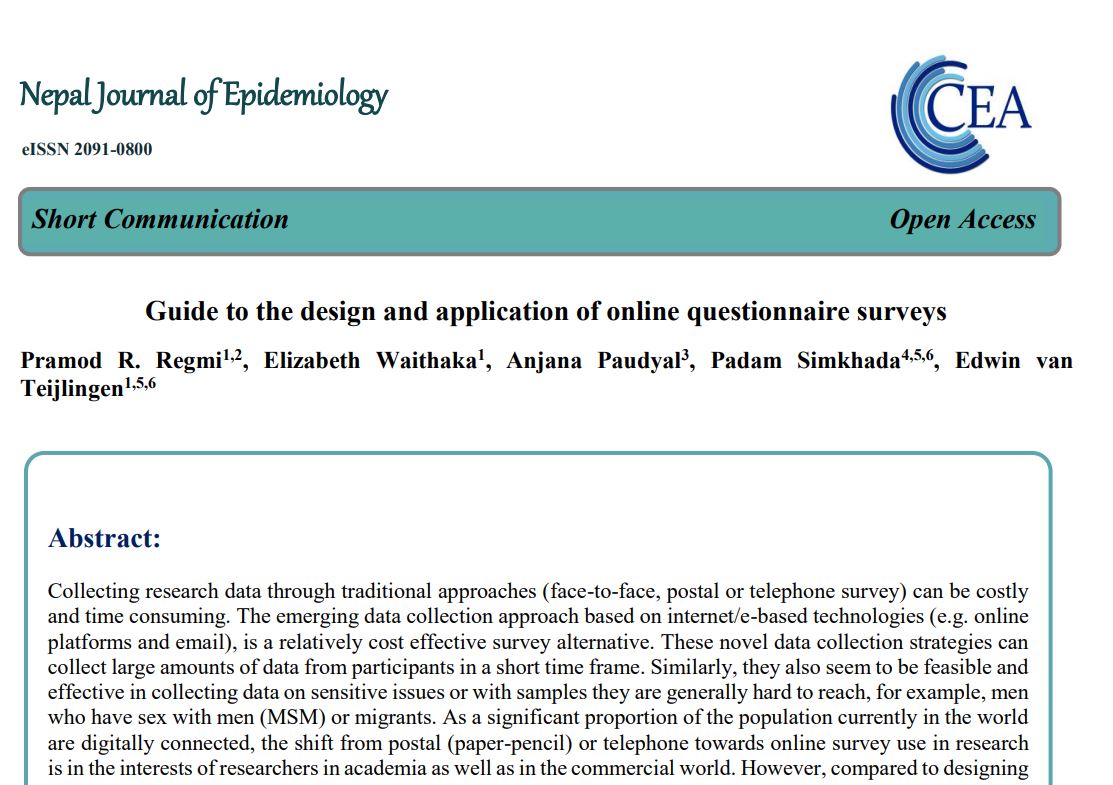


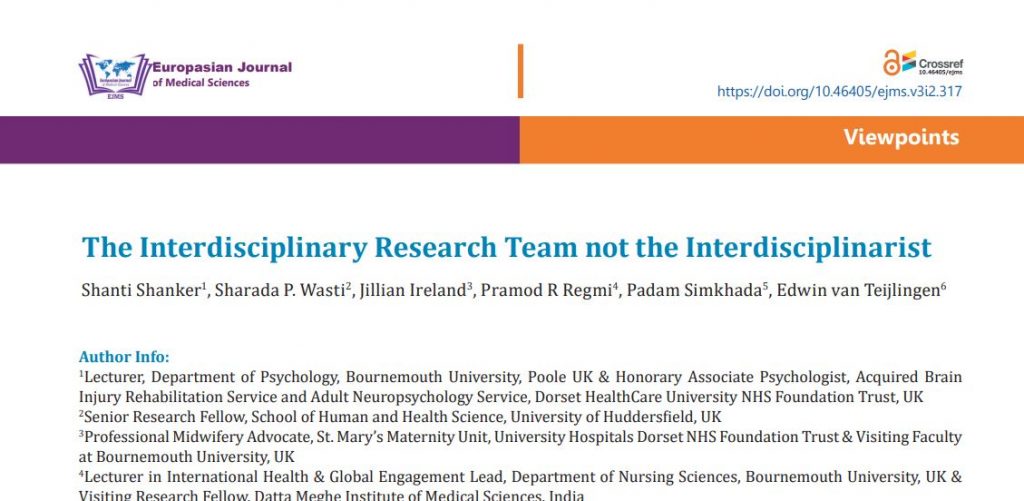
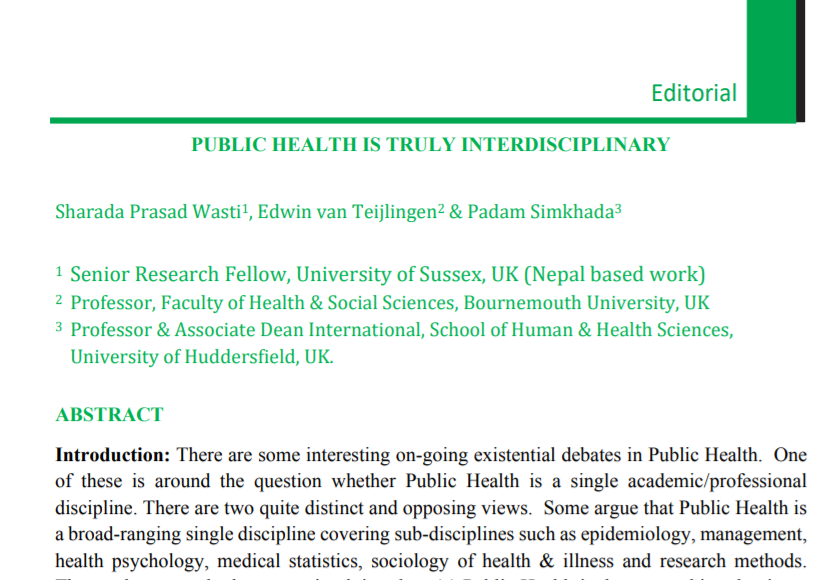




 Today we received notice that our paper ‘The impacts of decentralisation on health systems: a systematic review of reviews’ has been accepted by the international journal BMJ Global Health. [1] This review of reviews was produced as part of the Nepal Federal Health System Project, examining the consequences for the health system of Nepal’s move to a federal government structure. This is a joint project (2020-2024) led by the University of Sheffield and in collaboration with Bournemouth University, the University of Huddersfield,
Today we received notice that our paper ‘The impacts of decentralisation on health systems: a systematic review of reviews’ has been accepted by the international journal BMJ Global Health. [1] This review of reviews was produced as part of the Nepal Federal Health System Project, examining the consequences for the health system of Nepal’s move to a federal government structure. This is a joint project (2020-2024) led by the University of Sheffield and in collaboration with Bournemouth University, the University of Huddersfield, 

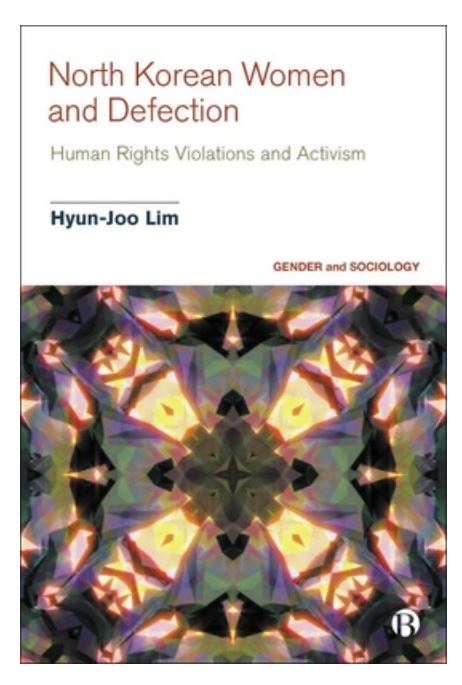
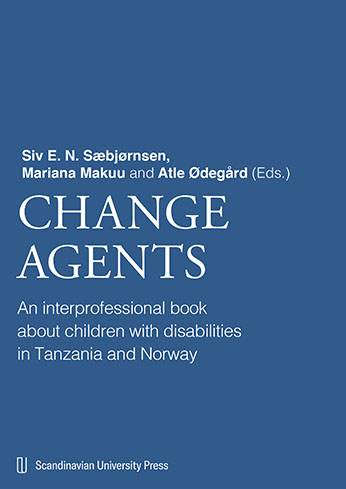


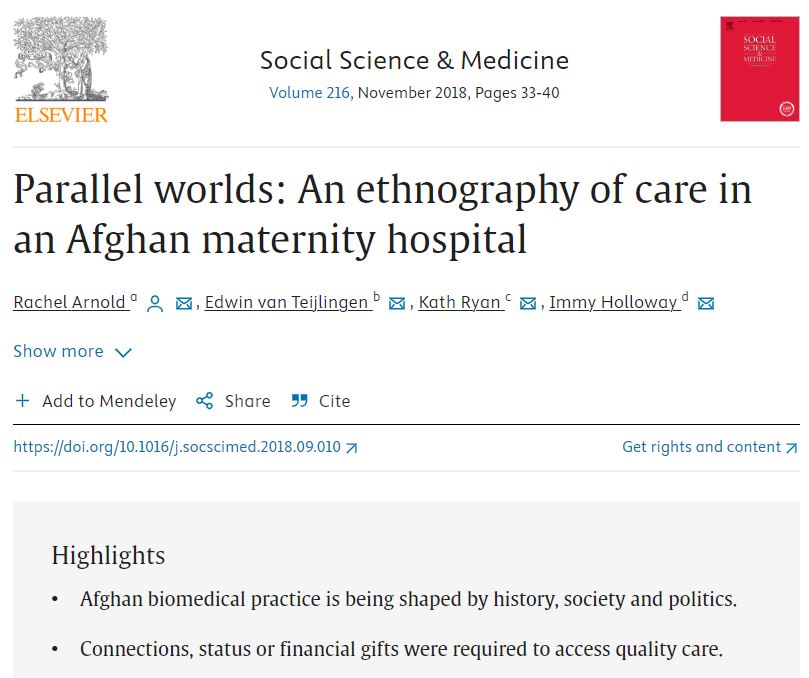
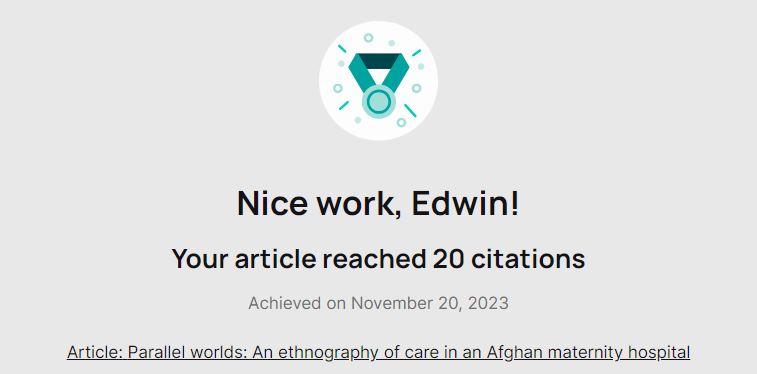

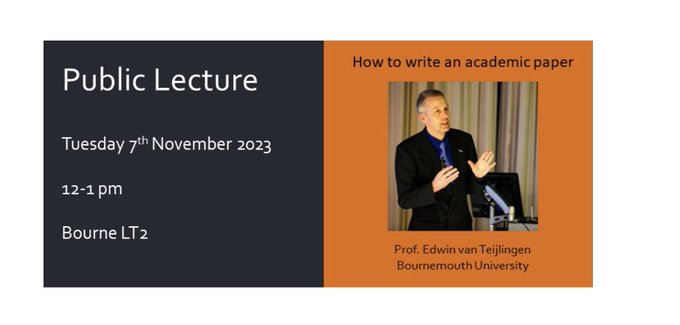 Professor Edwin van Teijlingen in the Centre for Midwifery & Women’s Health (CMWH) has been invited to speak at Royal Holloway, University of London, about writing an academic paper. His public lecture will be coming Tuesday lunch time in the appropriately named ‘Bourne Lecture Theatre’ at Royal Holloway. Prof. van Teijlingen, together with several Bournemouth University (BU) colleagues, has published a text book [1], several book chapters [2-18] and a large number of papers [19-38] about a wide-range of aspects of academic writing and publishing. One of former BU academics, who co-authored a book chapter [10], and two papers [21, 25], is Dr. Preeti Mahato. She is Lecturer in Global Health at Royal Holloway as well as Visiting Faculty in BU’s Faculty of Health & Social Sciences.
Professor Edwin van Teijlingen in the Centre for Midwifery & Women’s Health (CMWH) has been invited to speak at Royal Holloway, University of London, about writing an academic paper. His public lecture will be coming Tuesday lunch time in the appropriately named ‘Bourne Lecture Theatre’ at Royal Holloway. Prof. van Teijlingen, together with several Bournemouth University (BU) colleagues, has published a text book [1], several book chapters [2-18] and a large number of papers [19-38] about a wide-range of aspects of academic writing and publishing. One of former BU academics, who co-authored a book chapter [10], and two papers [21, 25], is Dr. Preeti Mahato. She is Lecturer in Global Health at Royal Holloway as well as Visiting Faculty in BU’s Faculty of Health & Social Sciences.
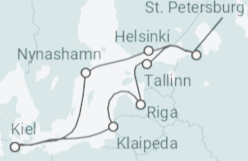
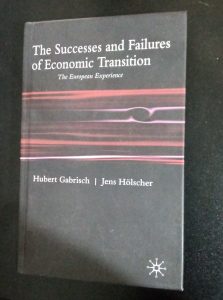

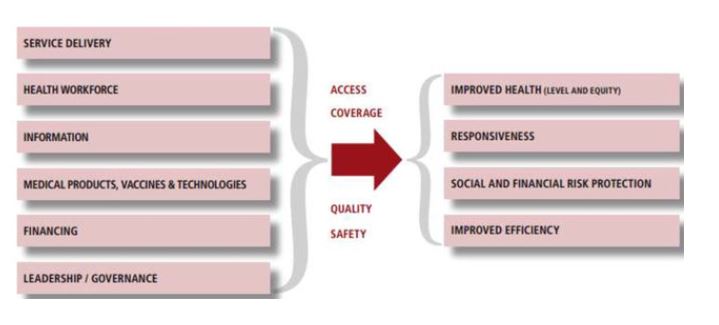
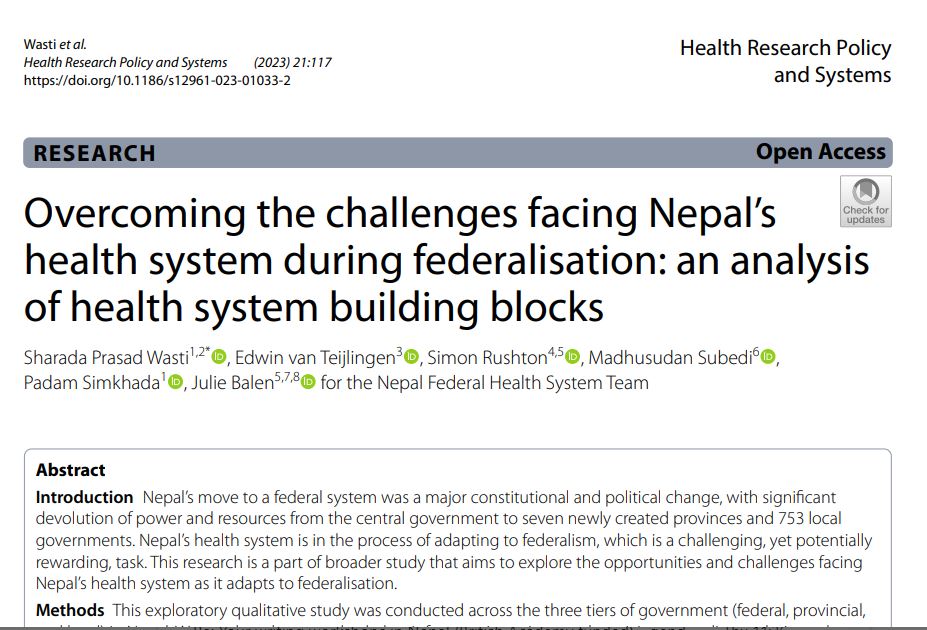
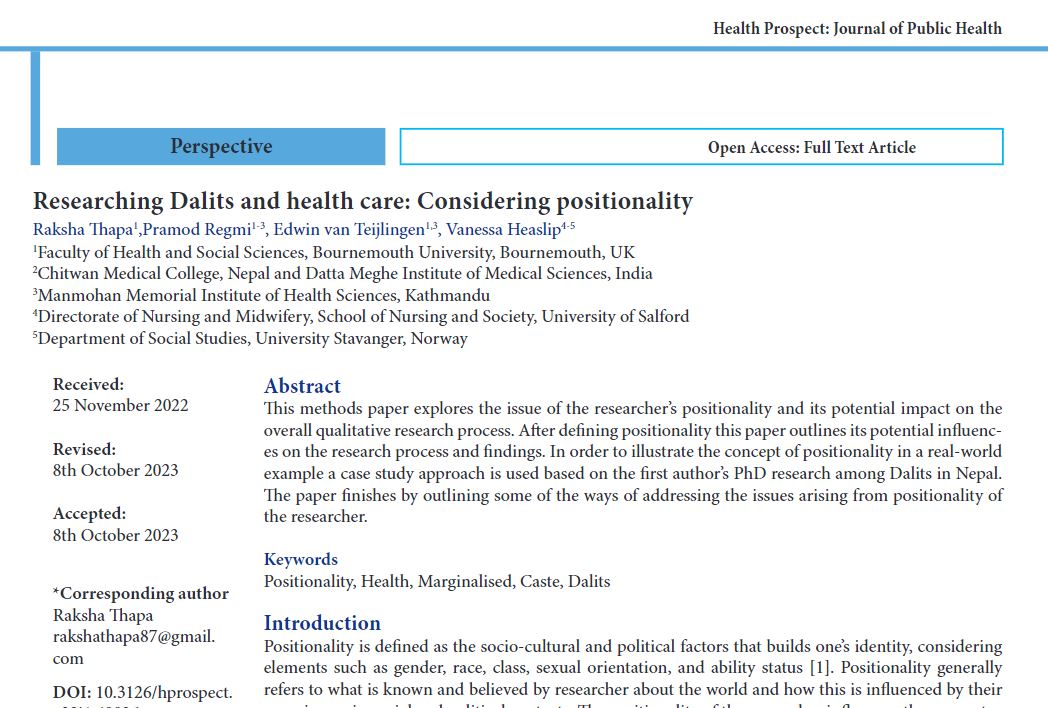

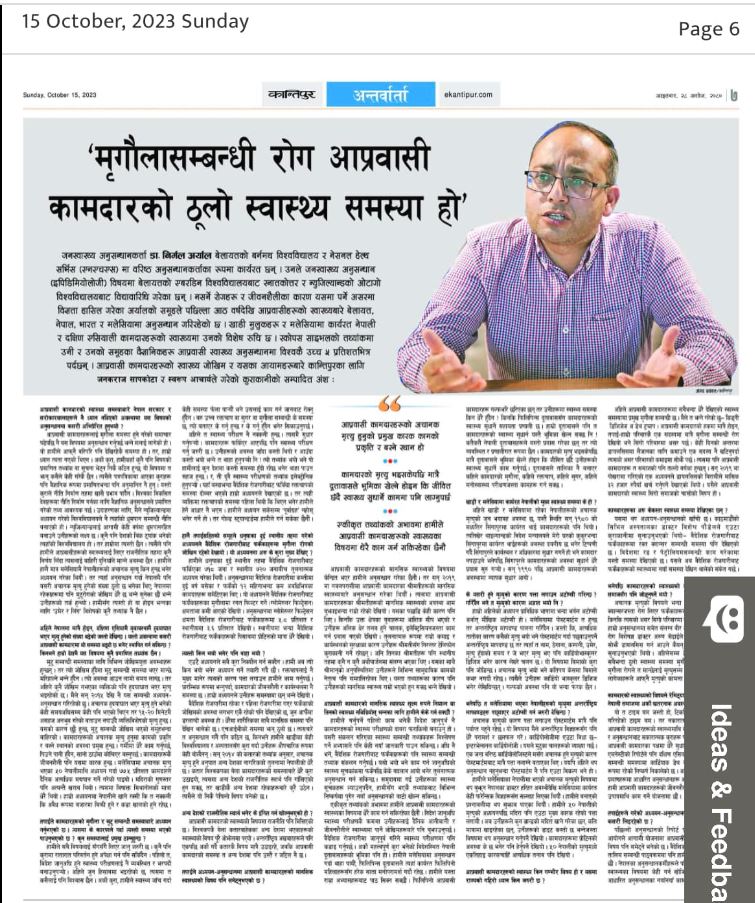
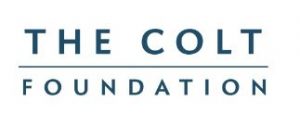











 New weight change BU paper
New weight change BU paper One week to go! | The 16th Annual Postgraduate Research Conference
One week to go! | The 16th Annual Postgraduate Research Conference Geography and Environmental Studies academics – would you like to get more involved in preparing our next REF submission?
Geography and Environmental Studies academics – would you like to get more involved in preparing our next REF submission? Congratulations to three former BU staff
Congratulations to three former BU staff MSCA Staff Exchanges 2024 Call – internal deadline
MSCA Staff Exchanges 2024 Call – internal deadline Applications are now open for 2025 ESRC Postdoctoral Fellowships!
Applications are now open for 2025 ESRC Postdoctoral Fellowships! Horizon Europe – ERC CoG and MSCA SE webinars
Horizon Europe – ERC CoG and MSCA SE webinars MaGMap: Mass Grave Mapping
MaGMap: Mass Grave Mapping ERC grants – series of webinars
ERC grants – series of webinars